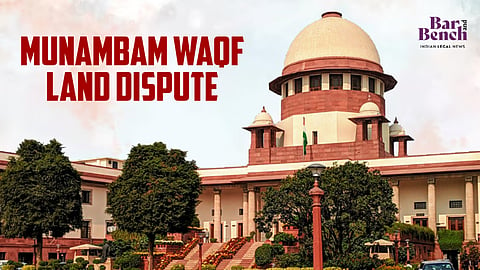
- Latest Legal News
- News
- Dealstreet
- Viewpoint
- Columns
- Interviews
- Law School
- Legal Jobs
- हिंदी
- ಕನ್ನಡ

The Kerala Waqf Samrakshana Vedhi has moved the Supreme Court of India challenging the verdict of the Kerala High Court which had upheld the State government's formation of an inquiry commission to examine the rights of around 600 families facing eviction after a property at Munambam was declared to be a waqf [Kerala Waqf Samrakshana Vedhi (Registered) v. State of Kerala & Ors.]